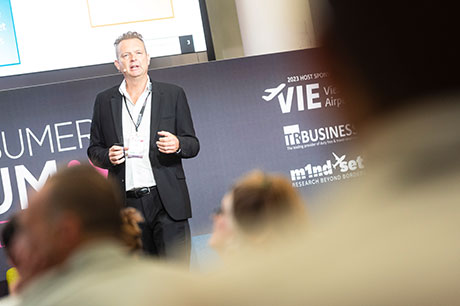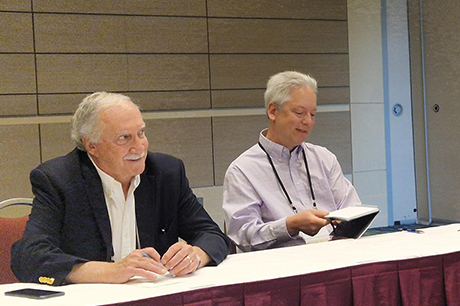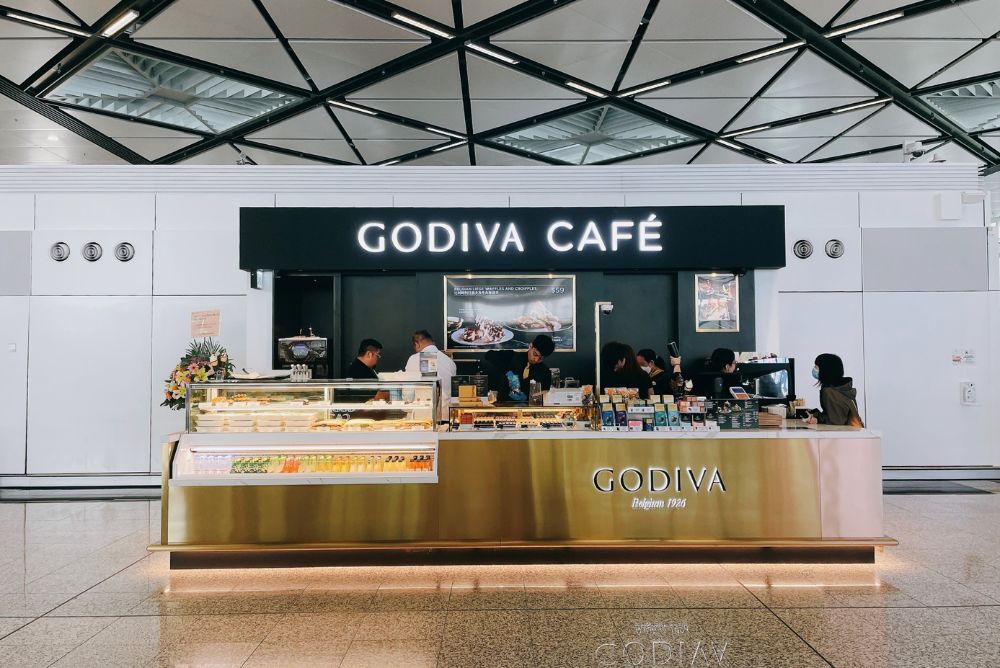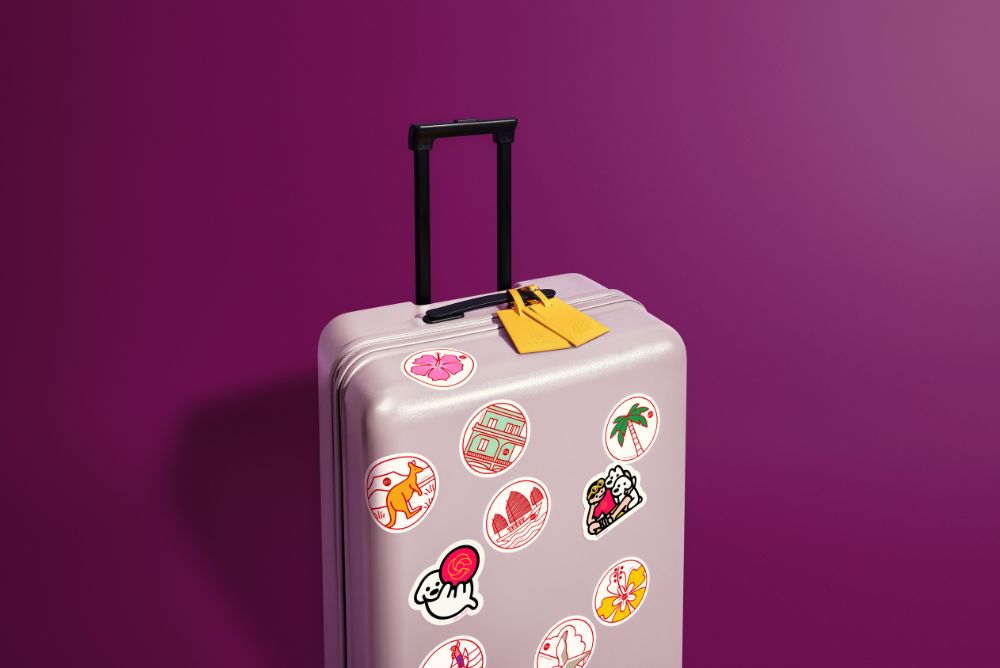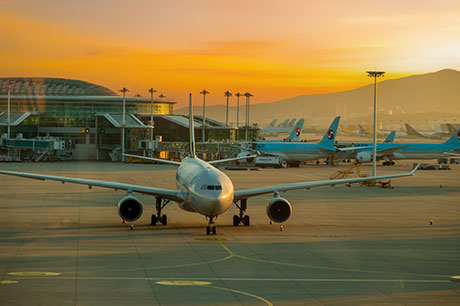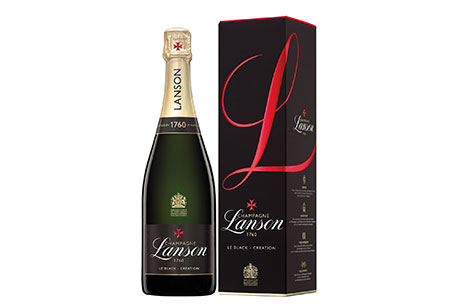Ferrero to diversify product portfolio and supercharge sustainability in 2023
By Faye Bartle |

The Kinder Cards. Right: Sergio Salvagno, General Manager, Ferrero Travel Market.
Ferrero Travel Market (FTM) is working to bolster its business in global travel retail in 2023 by tackling key challenges head on and seizing fresh opportunities for growth.
During the discussions with its partners at TFWA World Exhibition & Conference in Cannes in October, Ferrero has confirmed that a key priority for the year ahead is the importance of delivering innovations to market.
As previously reported, FTM is diversifying its product range by launching new biscuits products by its Kinder and Nutella brands into the channel.
“The brands have been a source of trust for so long that they have built a special relationship with customers around the world,” said Sergio Salvagno, General Manager, FTM.
“Now we feel that the travel market is ready to leverage on this trust to bring something new to the market.
“Biscuits will build a new category of products that will grow richer every year to target different consumption needs, with the same top-quality ingredients and artisanal work that’s behind every Ferrero product.”
Sales of Ferrero Rocher tablets are also a “priority” for the company in 2023, with premiumisation highlighted as a key trend.
More key issues on the radar are the impact of supply chain constraints and inflation on the business, which Salvagno said are best tackled by working together with retailers and operators.
Further to this, moving forward with its sustainability journey is a major focus.
![Ferrero-updated[3] Ferrero Travel Market has launched three biscuit products from its Kinder and Nutella brands into GTR, grouped under 'La Biscotteria' umbrella branding.](https://d24chjhol3kq77.cloudfront.net/trbusiness.com/wp-content/uploads/2022/12/Ferrero-updated3.jpg)
Ferrero Travel Market has launched three biscuit products from its Kinder and Nutella brands into GTR, grouped under ‘La Biscotteria’ umbrella branding.
The company’s point of sales materials are becoming ‘increasingly premium and sustainable’, with more interactivity built in.
“A QR code will lead travellers to find out more about brands, to participate in interactive games and access more content in a way that they will become increasingly involved in writing the history of the brand together,” said Salvagno.
A top ambition (and challenge) for the company currently is increasing the circularity of its packaging without neglecting other relevant environmental impacts, such as reducing emissions from its own operations by 50% by 2030.
“To contribute to packaging circularity, we are designing all our packaging to be recyclable, reusable or compostable by 2025,” revealed Salvagno.
Within this is goal to reduce its use of virgin plastic by 10% and boost the uptake of recycled content in its plastic packaging to 12% by 2025.
“We will only achieve this goal by working with all our value-chain partners and promoting responsible disposal of packaging with our consumers,” he said.
![Ferrero-biscuits[1] Ferrero's Nutella Biscuits pouch and tube.](https://d24chjhol3kq77.cloudfront.net/trbusiness.com/wp-content/uploads/2022/12/Ferrero-biscuits1.jpg)
Ferrero’s Nutella Biscuits pouch and tube.
A case in point is the new eco-designed polypropylene Ferrero Rocher boxes.
Launched in September 2021, they are currently being phased-in around the world, starting with the company’s best-selling compact boxes of 16 and 30 pieces, which use 40% and 38% less plastic respectively.
As well as being easier to recycle, the initiative will ‘save approximately 2,000 tonnes of plastic in its first year’, according to Ferrero.
What’s more, once it has been implemented across the entire Ferrero Rocher portfolio, the new box design will save an estimated 10,000 tonnes of plastic by 2025.
“The new boxes also reduce the carbon footprint by at least 30%, compared to the previous box,” said Salvagno. “When effectively recycled, the CO2 reduction is 70%, compared to the previous box.”
Consumers are informed of how they too can contribute to the circular economy, with information on how to sort different packaging materials in the home for further use or recycling.
It’s set to be a busy two years ahead for the company, with agreed actions to be taken by 2025 including: redeveloping existing packaging to ensure it is recyclable, compostable and/or reusable through the use of alternative materials and design (as mentioned above); utilising new technologies and global partnerships to maximise the use of recycled materials (‘where it is safe for consumers’) and compostable materials in its packaging; and partnering with recyclers and national waste-management systems to develop solutions for hard-to-recycle materials, as well as looking into opportunities to use packaging waste as a resource.
Furthermore, FTM is working on brand new point of sales materials, which will help to ‘reduce waste and lessen the company’s environmental impact in the market’, based on six key pillars: Rethink, Reduce, Reuse, Repair, Refresh & Recycle.
Alcohol insights: Conversion up, spend down in Q4
Conversion of visitors in the alcohol category in duty free has risen to 54% in Q4 2023,...
Men buy and spend more in travel retail says new research by m1nd-set
Men have a higher conversion rate and spend more when shopping in travel retail, says new...
Saudia Arabia's KKIA unfurls T3 duty free expansion
King Khalid International Airport (KKIA) has unveiled the first stage of its much-vaunted duty...
-
 International,
International,Alcohol insights: Conversion up, spend down in Q4
-

-
 International,
International,Saudia Arabia's KKIA unfurls T3 duty free expansion

In the Magazine
TRBusiness Magazine is free to access. Read the latest issue now.

 Trbusiness. The travel retail Trbusiness. The magazine for global retail and duty free professionals.
Trbusiness. The travel retail Trbusiness. The magazine for global retail and duty free professionals.
